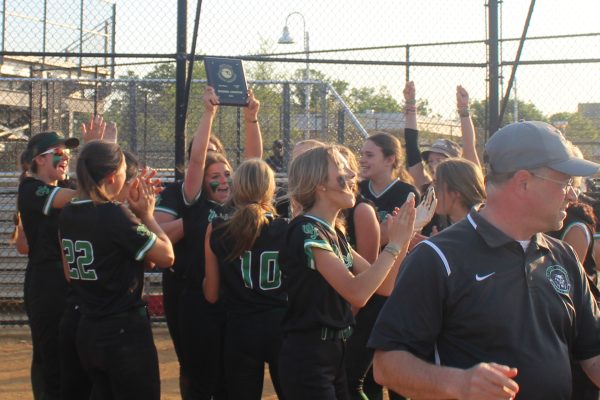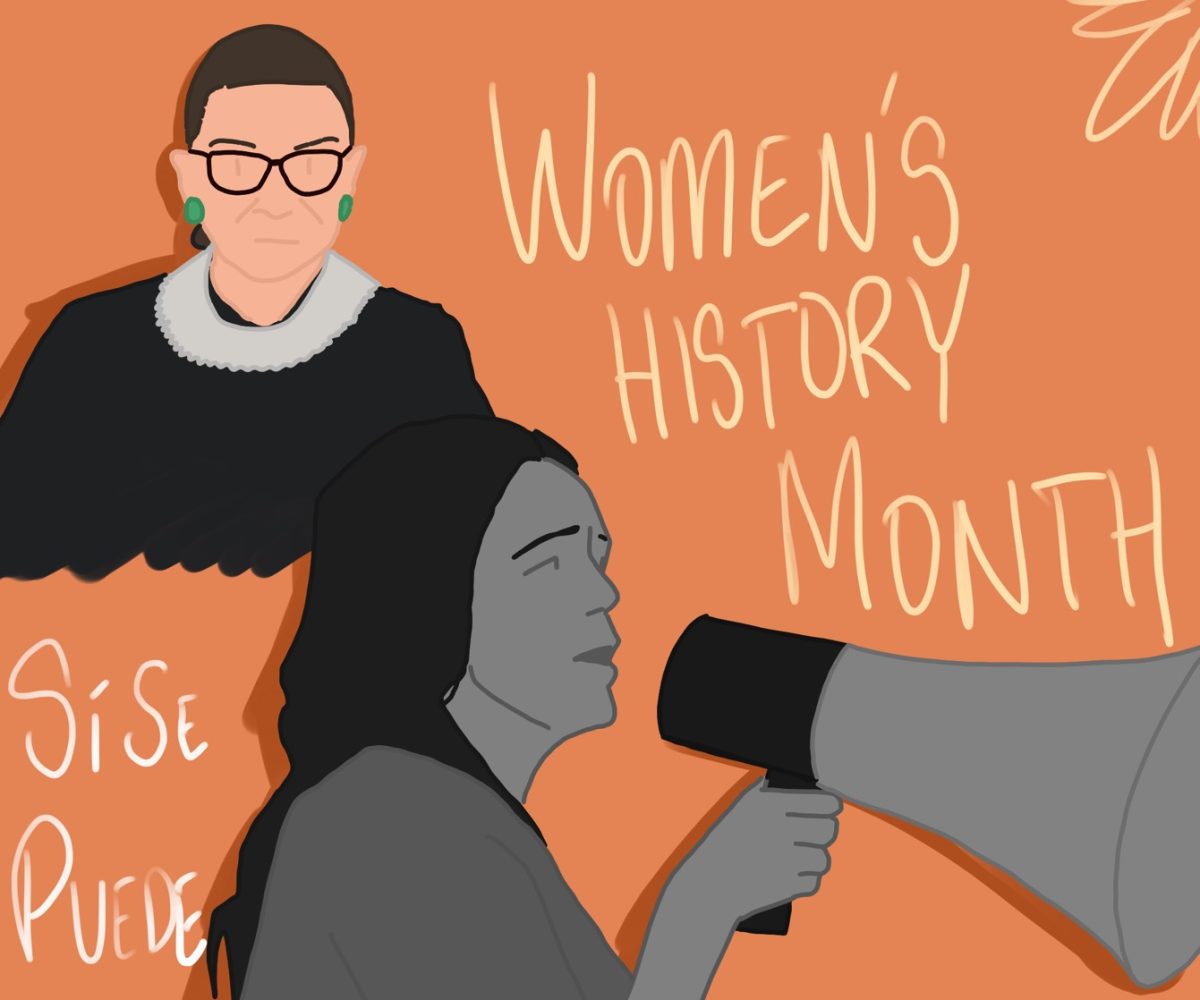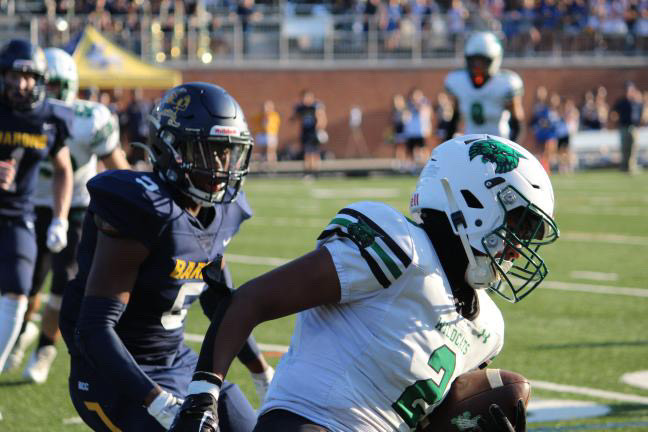
One of the most crucial choices I made throughout my entire educational experience was choosing the semester class I took along with health. I knew I wanted to take a history class rather than a more relaxed course, and I debated between several different social studies semester electives, none of them truly drawing my attention. I decided to go with something that I thought I had some background knowledge on, African American History. This semester class that I thought was essentially a schedule space-filler turned out to be the high school class that I have learned the most in, and has impacted my view of the world the most drastically.
In the U.S. history class that all MCPS students are required to take before they graduate, the African American experience is covered in such a brief manner. It covers slavery, reconstruction and the civil rights movement, which fails to truly help students understand race relations in the US and the systematic oppression by our own government. These classes tend to sugarcoat what has actually happened to African Americans after slavery and most importantly the U.S. government’s involvement for over a century to try and undercut any success or progress African Americans tried to make in the rigid divide in success between whites and blacks.
In US history we learn about hundreds and hundreds of political activists, yet some of the most influential are left out (primary black). For example, Sojourner Truth, who successfully challenged a white man (one of the first times black women did that) in a United States court. Or James Thompson, who created the Double V campaign that advocated for victory abroad in World War II and at home against racism. Yet, Malcolm X is my personal favorite, a fearless, outspoken member of the Nation of Islam who transformed African American’s view of America as much as Martin Luther King did. He is not nearly as famous as he should be because MLK was an advocate of peace, which is how white America wanted to characterize the civil rights movement. Malcolm X was a devoted activist who should be widely admired for his direct approach in demanding equality no matter the cost. When students don’t learn about these historical figures their education of US history is severely limited.
Another striking example of US history’s glossing over of the African American experience is the Great Migration. Most people a know the basics of the Great Migration, which is taught in history class and textbooks as a time when African Americans wanted more job opportunities so they went north, which is only part of the story. Lynchings and racial violence played a major role. Over 4,000 lynchings occurred in the south between 1877 and 1950. So, the Great Migration was not only a migration for a job opportunity, it was forced due to racial violence amounting to 6 million African Americans moving to the north and the west in the first half of the 20th century with many fleeing in fear for their lives. Lynchings and racial terrorism is a topic hardly touched on in history books and aren’t really presented as a legitimate reason for the great migration.
Also, the 1950s is a time in American history taught as a time of prosperity with America as a superpower compared to the rest of the world, who were still recovering from the devastating effects of WWII. Yet, this doesn’t represent all of America. In fact, the African Americans in the ’50s were not moving to the suburbs and buying all the new technology of the time. Blacks were kept out of the suburbs by many refusing to rent houses to them, because property values would go down since it was undesirable for white people to live near black people because it made the neighborhoods “less safe”. Also, redlining, the racially motivated process of refusing loans based on if the person seeking the loan lived in a poor neighborhood, occurred during this time. Additionally, if a black family managed to try and move into these exclusive (based on race) economic utopias, white flight would occur which was when a black family moved in and whites would rapidly leave the area. So, places like Queens went from virtually all white to all black in the span of 10 years. This period of whites easily accessing housing and prosperity would have economic benefits that spanned across generations. So, the comments made about how slavery ended over a century ago and that black people have no excuse for their levels of poverty and income inequality in comparison to whites is unfounded and unfair.
The 50s was also known as a time of rock and roll, which was completely stolen from African Americans. All the famous singers of rock and roll were white because it was completely whitewashed. Elvis Presley, the “king of rock ‘n roll” stole one of his greatest hits “Hound Dog” from a black woman who had written the song four years before. Finally, rap music, the latest music phenomenon, is one created by black people and black people are benefiting from its success and it is not being whitewashed. Actress Amandla Stenberg summed it up perfectly when she said, “What would America be like if it loved black people as much as it loves black culture?” America seems to care about the culture significantly more, with the sensation around black celebrities versus average African Americans and the great divide.
Another example of something that is greatly underrepresented in US history is the governmental sabotage that took place during the civil rights movement. From the FBI bugging prominent African American leaders’ phones and hotel rooms, to threats to blackmail to the suicide letter MLK received from the FBI threatening him to not accept the Nobel peace prize, or even the manufactured feud they created to ultimately end the Black Panther political party, which was the dominant civil rights organization in the ‘70s.
Of course, this is a very brief overview of some of the impactful topics we studied. But, this class allowed me to understand the prevailing impacts of racist policies from the mid 20th century. This class taught me to learn how to speak with eloquence and intelligence on the matters of racial inequality today in the US. Although slavery ended over 100 years ago, throughout the entire 20th century the US government and white America tried to tear down any African Americans that tried to obtain economic success, which has had effects for generation upon generation. I now know how false the statements that are thrown around about black people needing to work harder to close the wide achievement gap is false, while in reality the American system has set them up for practically nothing besides failure. That’s why it’s even more imperative for students not of African American descent to take this course because it will educate them on why racial inequality has burdened the US for over 100 years. Realistically this course probably won’t become mandatory anytime soon, but I can hope that at least more students, especially non-African Americans decide to engage in the vast enlightenment they can achieve from African American studies. I know that the experience changed my perspective on American history forever and I am certain that once completing this class yours will be, too.



![Sophomore Mason Lee encompasses the persona of his character, Enjolras, during a rehearsal of Act One. I think [rehearsals are] going well and were very on track [with the squedule]... which is good, Student Assistant Director senior Neena Tavik, who is also playing Eponine, said. (Courtesy Sasha Rotton)](https://www.wjpitch.com/wp-content/uploads/2024/03/24466917-801C-45FE-A882-D818DABBDCB8-600x451.jpg)












Jake • Jul 3, 2019 at 3:37 pm
Amazing ??